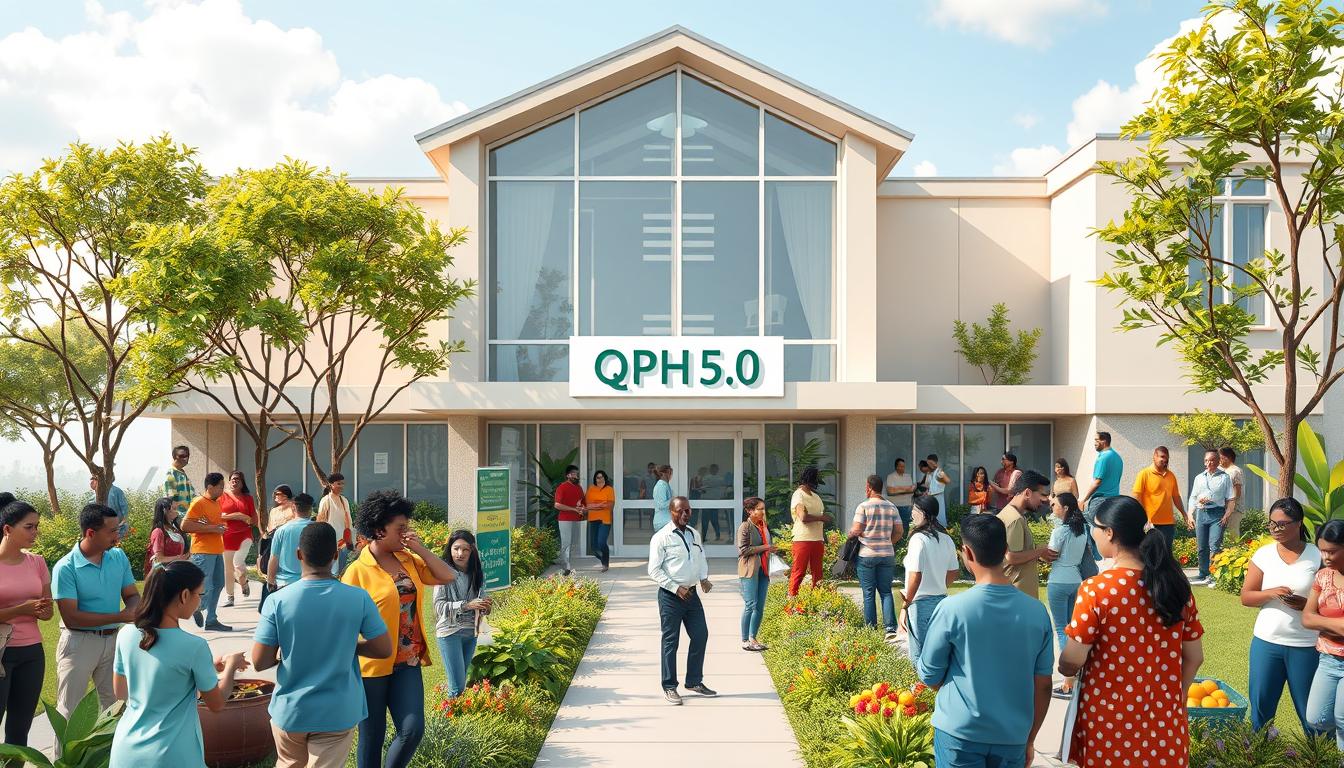
Population Health Management: Enhance Patient Wellbeing
Did you know that 80% of health outcomes are shaped by factors outside healthcare? This shows how vital population health management is today. It focuses on the health needs of groups to boost patient wellbeing. By focusing on prevention and community health, it aims to ease healthcare burdens and enhance life quality.
Understanding Population Health Management in Modern Healthcare
Population health management is key in today's healthcare. It uses data analytics to spot trends and forecast outcomes. With population health data, doctors can create specific care plans. This helps improve patient health and fits with value-based care models.
Data analytics helps shift healthcare from reacting to acting. It focuses on preventing problems and cuts down on expensive treatments. The main advantages are:
- Improved patient outcomes
- Enhanced quality of care
- Reduced healthcare costs
By looking at population health data, doctors can find high-risk patients. They can then make care plans just for them. This not only helps patients but also makes healthcare more efficient. As healthcare gets more complex, focusing on value-based care and using population health data is vital.
Key Benefits of Population Health Management Solutions
We understand the vital role of chronic disease management in better patient care. Population health management solutions help healthcare providers offer preventive healthcare. This leads to fewer hospital visits and a better life for patients.
Some main advantages of these solutions are:
- Regular check-ups and screenings improve disease management.
- Early detection and action stop diseases from getting worse.
- Patients learn more about their health, helping them manage it better.
Research shows that these solutions greatly help patients, mainly those with chronic diseases. By focusing on chronic disease management and preventive healthcare, they cut healthcare costs and boost health results.
In the complex world of healthcare, it's key to focus on preventive healthcare. This ensures patients get the care they need to handle chronic diseases well. Doing this improves health outcomes, lowers healthcare costs, and boosts life quality for people and communities.
Transforming Patient Care Through Data-Driven Insights
Data-driven insights are key in changing patient care, mainly in population health management. By using predictive analytics, healthcare teams can spot high-risk patients. They can then create specific plans to stop hospitalizations and boost patient involvement.
This method moves us from a one-size-fits-all care to tailored plans for each patient. It's all about meeting the unique needs of every individual.
Predictive analytics in population health management helps find high-risk patients. This lets healthcare teams focus on them. It can stop hospital stays and make patients more involved in their care.
Some main benefits include:
- Improved patient outcomes through targeted interventions
- Enhanced patient engagement and empowerment
- More efficient and effective healthcare systems
As we move forward in population health management, focusing on patient engagement is vital. Using data-driven insights helps us make better choices. This leads to a healthcare system that's more centered on the patient, improving outcomes and wellbeing.
In population health management, engaging patients is key for the best results. Data-driven insights and predictive analytics help create care plans that fit each patient's needs. This boosts patient engagement and overall wellbeing.
Advancing Healthcare for Future Generations
Population Health Management is growing, and it's changing healthcare for the better. It helps create healthier communities and supports new care models. By focusing on prevention and a whole-person approach, we can tackle chronic diseases and improve health for future generations.
This approach, with its focus on community and value-based care, is key to healthcare's future. It empowers people and communities to manage their health. This creates a culture of wellness and prevention, benefiting everyone.




